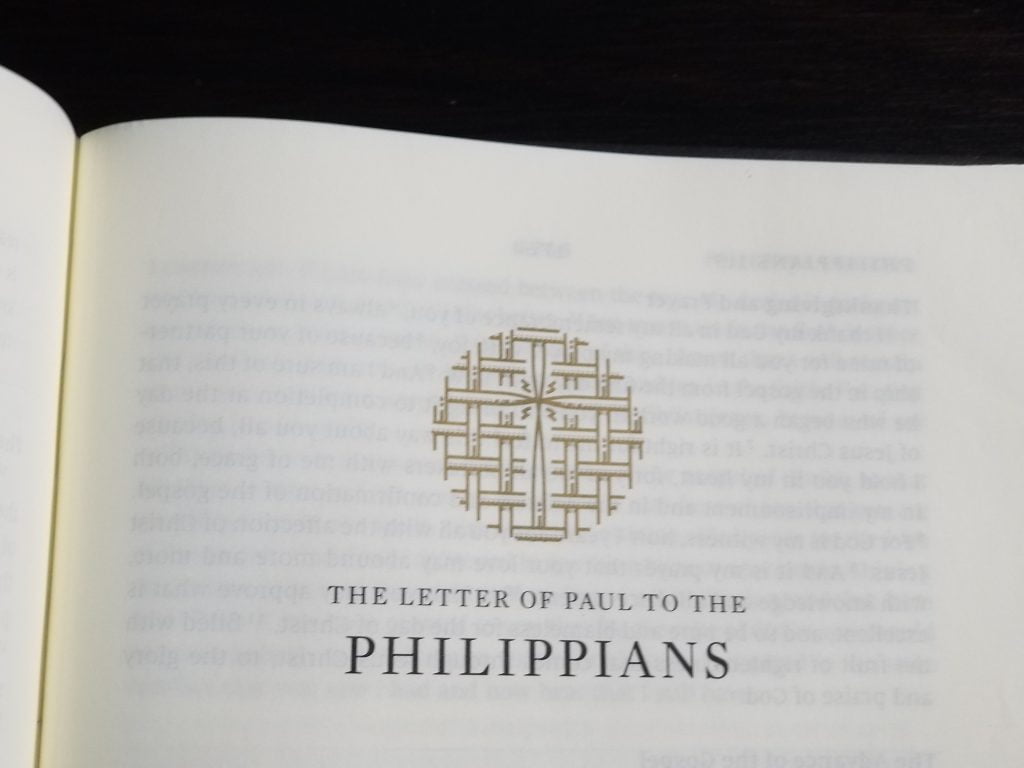⏱️ Estimated Reading Time: 4 min read
Philippians 4:10-13, “I rejoiced in the Lord greatly that now at length you have revived your concern for me. You were indeed concerned for me, but you had no opportunity. Not that I am speaking of being in need, for I have learned in whatever situation I am to be content. I know how to be brought low, and I know how to abound. In any and every circumstances, I have learned the secret of facing plenty and hunger, abundance and need. I can do all things through him who strengthens me.”
When I was a young girl, my mom (bless her heart) impressed upon me the importance of writing thank-you notes. After each Christmas or birthday, I had to sit and write individual letters – mainly to my grandparents — thanking them for their gift and letting them know how much it meant to me. Even though my letters were somewhat formulaic, my grandparents seemed to appreciate them. At least they kept giving me presents!
Philippians is Paul’s thank-you letter to the church at Philippi. Paul was imprisoned, perhaps under house arrest, in Rome (Philippians 1:13-14). The Philippian church heard about Paul’s situation and sent Epaphroditus with a gift of money (Philippians 2:25, 4:18). Paul writes to acknowledge this gift, and to let the Philippians know how much they mean to him (Philippians 1:3-8). Of course, Paul also takes the opportunity to give rich pastoral instruction.
In this passage, Paul says that the gift made him very happy: “I rejoiced in the Lord greatly.” (Philippians 4:10). But he was careful to make clear that his happiness was not due to the money itself. He treasured the gift as a concrete expression of the Philippians’ concern (Philippians 4:10). This was not the first time that the Philippians had supported Paul; they also provided funding for his ministry in Thessalonica and Corinth (Philippians 4:16; 2 Corinthians 11:9). So Paul knew that the Philippian church cared for him, and he rejoiced that they had this opportunity to express their support monetarily.
Paul goes on to praise the kindness of the Philippians in sharing his trouble (Philippians 4:14). But ultimately, Paul says he is not seeking the gift itself. No, Paul seeks the spiritual growth that the Philippians receive from their generosity (Philippians 4:17). In other words, Paul is glad the Philippians have the privilege of supporting him. This is not your typical thank-you letter!
Paul goes further, telling the Philippians, “It’s not like I needed your gift!” (Philippians 4:11). Although it sounds a little rude, Paul is actually giving the Philippians a great lesson. Paul says, “I have learned in whatever situation I am to be content.” He knows how to face humiliation, hunger and need, as well as abundance (Philippians 4:11-12). And now Paul shares his precious, hard-won secret with the Philippians: “I can do all things through him who strengthens me” (Philippians 4:13).
I’m afraid this verse is often quoted out-of-context, as a feel-good affirmation for taking on big challenges. Apply for that prestigious degree program! Ask for a raise! Run a marathon! But Paul’s instruction is both more ordinary, and more deeply transforming.
Paul assumes that the ordinary Christian will experience low times, even hungry times. He also assumes that the ordinary Christian will experience times of plenty. And in all of these times, God promises his strength to remain faithful. If difficulties tempt you to grumble, God will help you hold your tongue (2:14). If success pulls you toward conceit, God will lead you back to humility (Philippians 2:3). He will bring his work in your life to completion (Philippians 1:6).
The secret of contentment is walking in obedience, no matter what, trusting that God is always working for good. (Philippians 2:12-13). The secret of contentment is remembering Christ, who emptied himself, took human form, and obeyed to the point of death (Philippians 2:6-8). The secret of contentment is keeping our eyes on the goal, the coming kingdom of Christ in glory (Philippians 3:14, 20-21). The secret of contentment is turning our requests over to God with thankfulness, even as we wait for an answer (Philippians 4:6).
Although Paul did not need the Philippian gift, he recognized the sacrifice they made. (Philippians 4:18). Most of all, he was thankful for the Philippians themselves, his partners in the gospel (Philippians 1:3).
Thank-you letters are becoming a lost art. Some young people have never even addressed an envelope! But we can still meditate on Paul’s thank-you letter to the Philippians. Whether we are in need, or have the opportunity to help, we can partner with other believers from a place of contentment.



